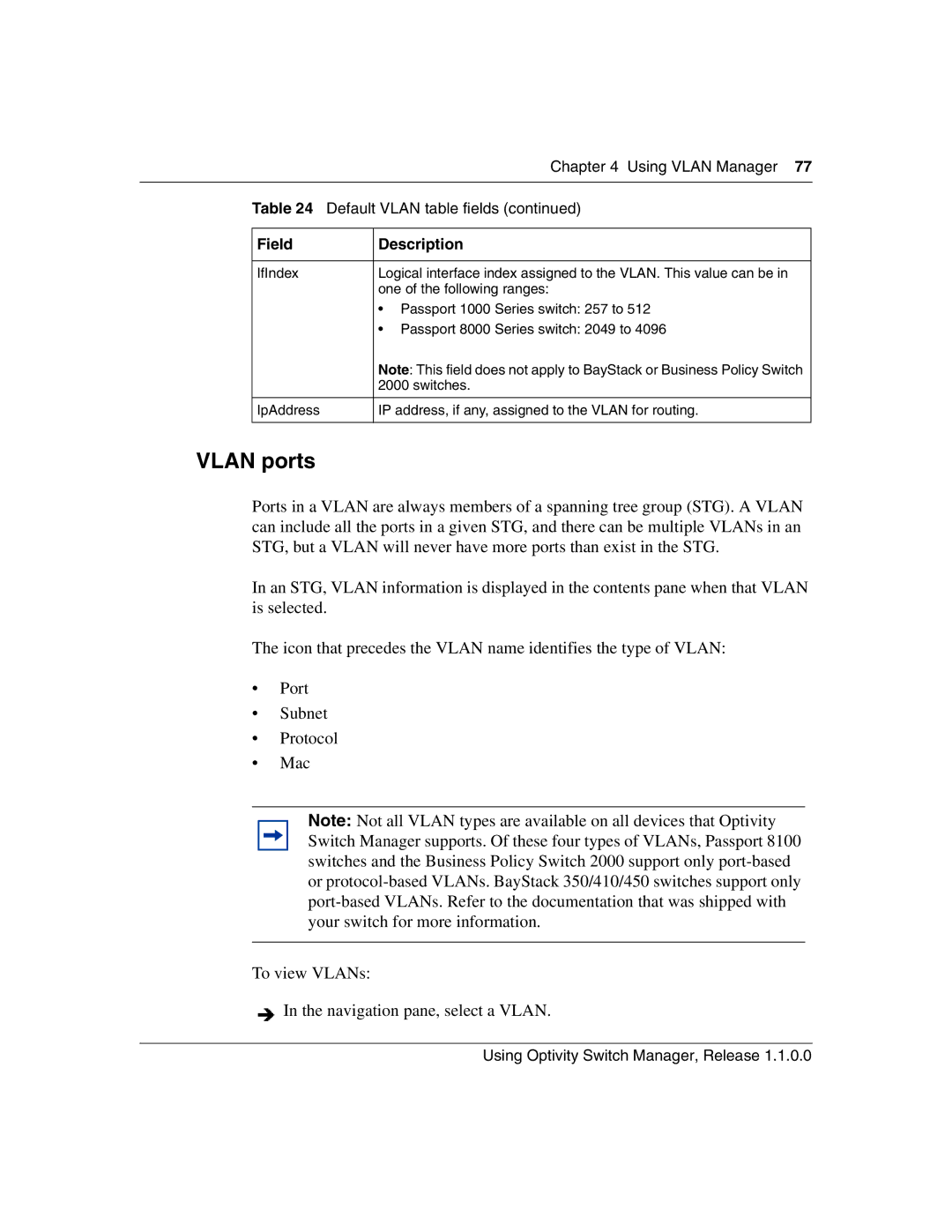
|
| Chapter 4 Using VLAN Manager 77 |
|
|
|
| Table 24 Default VLAN table fields (continued) | |
|
|
|
| Field | Description |
|
|
|
| IfIndex | Logical interface index assigned to the VLAN. This value can be in |
|
| one of the following ranges: |
|
| • Passport 1000 Series switch: 257 to 512 |
|
| • Passport 8000 Series switch: 2049 to 4096 |
|
| Note: This field does not apply to BayStack or Business Policy Switch |
|
| 2000 switches. |
|
|
|
| IpAddress | IP address, if any, assigned to the VLAN for routing. |
|
|
|
VLAN ports
Ports in a VLAN are always members of a spanning tree group (STG). A VLAN can include all the ports in a given STG, and there can be multiple VLANs in an STG, but a VLAN will never have more ports than exist in the STG.
In an STG, VLAN information is displayed in the contents pane when that VLAN is selected.
The icon that precedes the VLAN name identifies the type of VLAN:
•Port
•Subnet
•Protocol
•Mac
Note: Not all VLAN types are available on all devices that Optivity Switch Manager supports. Of these four types of VLANs, Passport 8100 switches and the Business Policy Switch 2000 support only
To view VLANs:
![]() In the navigation pane, select a VLAN.
In the navigation pane, select a VLAN.
Using Optivity Switch Manager, Release 1.1.0.0
